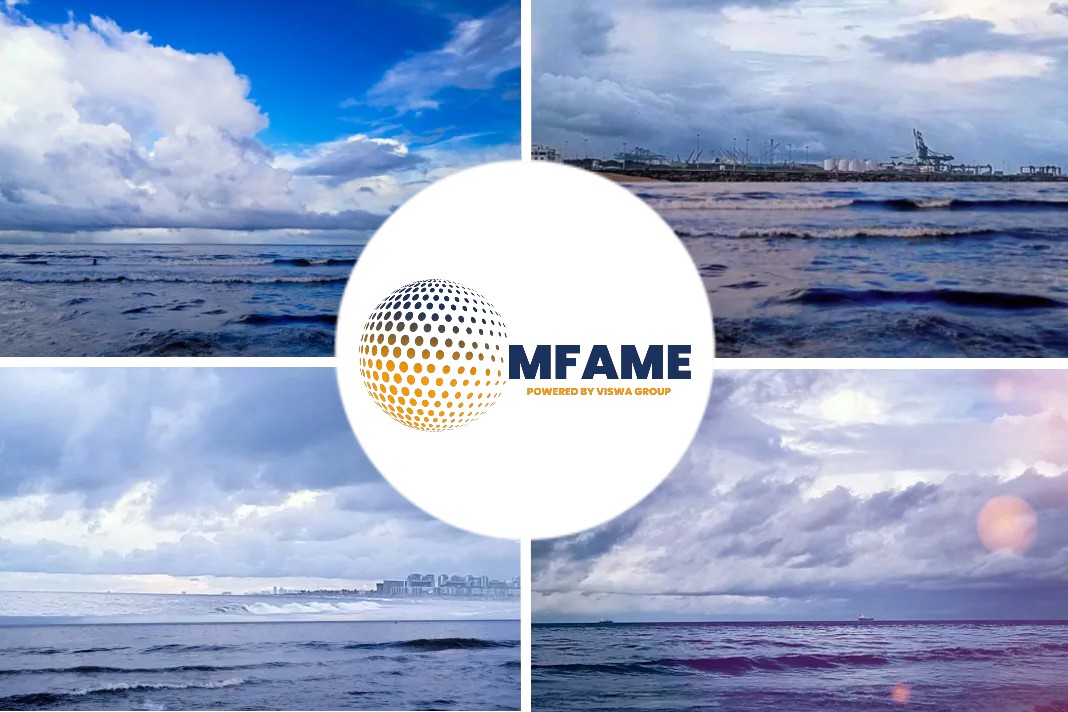
A recent news article published in the Riviera deals with the current state of maritime decarbonisation.
Global shipping community
A presentation at Nor-Shipping 2023 revealed the true progress of decarbonisation across the global shipping community.
In a joint presentation given at Nor-Shipping on 7 June 2023, Global Centre for Maritime Decarbonisation CEO Lynn Loo, and Boston Consulting Group principal Seng Chiy Goh, with Boston Consulting Group managing director and partner Michael Tan, introduced the findings of their inaugural maritime decarbonisation survey into shipowners’ attitudes and practical approaches to decarbonisation.
“We received responses from 130 shipowners and operators,” said Mr Tan, “and this is very significant, because in total, this group of participants account for more than 14,000 vessels and contributed more than us US$500Bn in revenues.”
The survey was designed to be answered by all strata of the shipping industry, from the three- to four-vessel owners, through to the largest shipowners and operators. The aim of the survey was to gain a good understanding of the current state of decarbonisation in shipping, and the major challenges and frictions that companies are facing on the decarbonisation journey.
Professor Loo noted that the survey showed significant heterogeneity, and instead of analysing the data by sector or size, as might be traditional, analysis was derived from quantifying the data on how far the respondents were along their decarbonisation journey – measured by the extent of the adoption of technical and operational efficiency levers.
Different respondents showed different timelines for when they expect to adopt sustainable fuels such as ammonia and methanol biofuels. Critically, this highlighted how varied the industry’s progress on decarbonisation is and how individual company’s progress depends heavily on size and resources.
“A much wider bunkering infrastructure will be needed for fuels like ammonia”
From the analysis, this categorised the survey respondents into three archetypes, based on their decarbonisation journey. Respondents’ progress towards decarbonisation can be categorised as frontrunners, followers, and conservatives. Frontrunners are actively adopting new, more sustainable technologies and fuels; followers view decarbonisation as necessary but have a shorter timeline for investments; conservatives are early on in their decarbonisation journey and often face limited resources or awareness of potential solutions.
Frontrunners made up 20% of the respondents – those with the highest ambition to achieving decarbonisation goals.
Forty percent of the respondents could be characterised as ‘followers’, those whose near-term outlook is focused on the value derived from solutions.
“Conservatives are early on in their decarbonisation journey,” said Professor Loo. “They are the least familiar with the technical and operational levers available. The low adoption rate, according to this survey, is because there is a lack of awareness of the solutions, or they are limited by internal resources and internal capabilities.”
Different sectors in shipping
Looking at general assumptions regarding the different sectors in shipping, it is often held that the liner sector is the quickest to adapt as it is closer to its customers, whereas the tanker sector has a very distant relationship with customers.
To some extent, this was borne out by the survey. More than 50% of the liner fleets were characterised as frontrunners, and 44% of tanker owners were conservative. Size also matters, and companies operating fleets of 100 vessels or more were frontrunners, and those with less than 20 vessels were conservative. It was suggested in the discussion that followed that larger companies have the resources to take on decarbonisation projects, which the smaller, resource poor, companies would struggle to fund.
Boston Consulting Group’s Mr Goh led the discussion into a deep dive into the data, revealing that 70% of the frontrunners had concrete plans toward adopting new fuels. This is in the form of biofuels, and many have concrete plans to use methanol by 2026, with some earmarking ammonia for 2029.
The plans of followers and conservatives tended to be less ambitious and tended towards methanol over ammonia. Mr Goh said the main challenge was that, “The molecule is not there.”
Without the infrastructure to supply methanol or ammonia, the change to these fuels will not even start for the followers and conservative owners. Without the economic argument and the infrastructure, these types of companies will not rise to the challenge, which is why, noted Mr Goh, regulations are going to be so important.
“The cost of non-compliance has to be factored into the business case,” said Mr Goh, “for there to be meaningful progress.”
If lack of compliance has a meaningful impact, then ammonia’s lower energy density becomes a factor. Owners were asked in the survey how this would be done. Would there be a sacrifice of cargo space to carry enough fuel or by bunkering more frequently?
“We found that 60% of respondents said they would adjust to this by bunkering more frequently,” said Mr Goh. This suggests a much wider bunkering infrastructure will be needed for fuels like ammonia than is currently available.
One clear response from participants concerned carbon capture, which was viewed by many as a key feature in their decarbonisation portfolio. The frontrunners’ response was that this would be at pilot stage by 2025, if not before. “Once you capture that CO2,” said Professor Loo, “The fate of that CO2 is critical.”
Did you subscribe to our daily newsletter?
It’s Free! Click here to Subscribe!
Source: Riviera





















